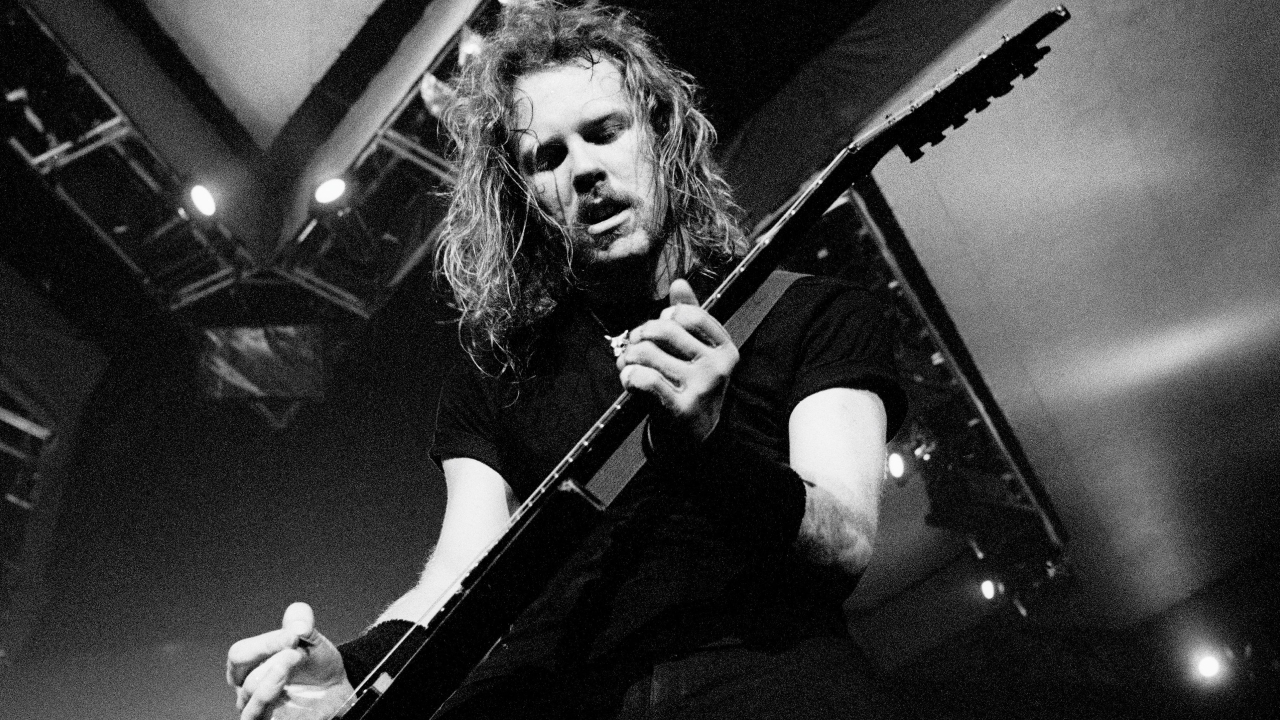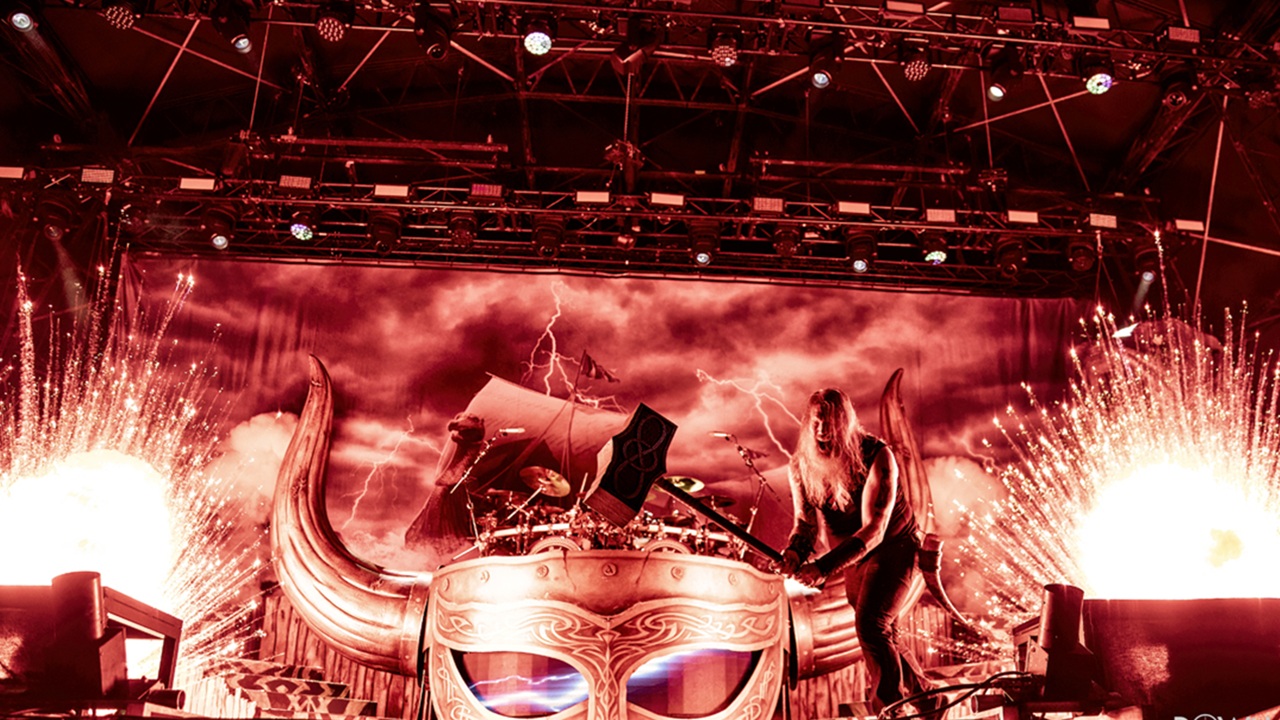“The teacher would say, ‘OK, get out your health books,’ and I would have to leave. My parents told me a little speech to say about our religion and why, and I didn’t believe it”: How Metallica turned childhood trauma into a decades-spanning trilogy
Inspired by James Hetfield’s isolated upbringing (and a little bit of Chris Isaak), Metallica made an honest, inverted ballad and kicked off a 27-year-long series

Select the newsletters you’d like to receive. Then, add your email to sign up.
You are now subscribed
Your newsletter sign-up was successful
Want to add more newsletters?

Every Friday
Louder
Louder’s weekly newsletter is jam-packed with the team’s personal highlights from the last seven days, including features, breaking news, reviews and tons of juicy exclusives from the world of alternative music.

Every Friday
Classic Rock
The Classic Rock newsletter is an essential read for the discerning rock fan. Every week we bring you the news, reviews and the very best features and interviews from our extensive archive. Written by rock fans for rock fans.

Every Friday
Metal Hammer
For the last four decades Metal Hammer has been the world’s greatest metal magazine. Created by metalheads for metalheads, ‘Hammer takes you behind the scenes, closer to the action, and nearer to the bands that you love the most.

Every Friday
Prog
The Prog newsletter brings you the very best of Prog Magazine and our website, every Friday. We'll deliver you the very latest news from the Prog universe, informative features and archive material from Prog’s impressive vault.
All of the best things come in threes. Lord Of The Rings films, Nirvana albums… God. The heavy metal world proves this as well, thanks to Metallica and their soul-searching trilogy, The Unforgiven. Originally written as a way for singer/guitarist James Hetfield to express his childhood alienation and passion for country, it’s now a decades-spanning saga, each entry finding the fire-spewing stars at their most vulnerable and adventurous.
The series kicked off in 1991, when the original Unforgiven was the fourth track on Metallica’s blockbuster Black Album. However, its story truly starts on August 3, 1963: the day Hetfield was born in Downey, California. His father left the family when he was 13 and his mother, a Christian Scientist who refused medical treatment even as she battled cancer, died when he was 16. The Unforgiven was a declaration of how isolated his parents’ faith made him feel when he was a kid.
“[The teacher would say] ‘OK, get out your health books,’ and I would have to leave,” Hetfield recalled in 2010 documentary Absent. “My reality was, when you’re standing in the hallway, you’re in trouble. Teachers are looking at you funny and you’re just getting the bad vibes from people. I’m out here because my parents told me a little speech to say about our religion and why, and I didn’t believe it.”
Talking to Melody Maker in 1992, Hetfield said that The Unforgiven – as well as Nothing Else Matters, a ballad about how much he missed his then-girlfriend on tour – was “therapy for myself”. The lyrics revisited his upbringing in the third person, opening with, ‘New blood joins this Earth, and quickly he’s subdued,’ before describing feelings of ‘pain’ and ‘disgrace’. He then sang about that child growing into a bitter old man, unable to forgive the people who wronged him when he was young.
Hetfield had written about his mum and dad before – 1988’s Dyers Eve famously charged out of the gate screaming, ‘Dear mother, dear father! What is this hell you have put me through?!’ – but this felt different. More sensitive. More inward.
That tone was only hammered home by the music. The first Unforgiven was an inverse ballad, weaving between Metallica’s trademark, thumping metal on the verses and introspective Americana during the intro and chorus. The latter was inspired by Hetfield’s secret love of country.
“The other guys hate me for it, but I really love country and western stuff,” the singer/guitarist admitted during a deleted scene from 1992’s A Year And A Half In The Life Of Metallica. “I wanted to put it in somewhere, and I did. They like it.”
Sign up below to get the latest from Metal Hammer, plus exclusive special offers, direct to your inbox!
According to Black Album producer Bob Rock, another unlikely influence was the sensual Chris Isaak hit Wicked Game. “[Hetfield] said, ‘Bob, I’ve never really sung before – I’ve just kind of yelled,’” he told Classic Rock in 2015. “He played me a Chris Isaak record and said, ‘On Nothing Else Matters and The Unforgiven, I want to sing. How do you sing like this?'”
Hetfield also pulled from his love of Western cinema. The Unforgiven was named after a 1960 Western starring Burt Lancaster and Audrey Hepburn. The rising horn that opened the track was a sample pulled directly from the film, as well, although the recording was reversed (likely to mask the ‘inspiration’ and stop United Artists’ lawyers from sniffing around).
Along with the rest of The Black Album, Metallica recorded The Unforgiven in Los Angeles from 1990 to 1991. The core parts of the song were already there when the band entered One On One Studios, but by the time they came out, Kirk Hammett’s solo had been totally transformed. As documented in A Year And A Half In The Life Of Metallica, Bob Rock hated the shred-a-thon that the lead guitarist had prepared, and he proceeded to borderline psychologically torture him until he improvised something more emotional.
Hammett told Guitar World in 2021: “Bob Rock accused me of not doing my homework. I don’t know what he was talking about, because I arrived into the studio with all these ideas, but they just didn’t work! I had to throw them all out […] That solo was raw emotion. I had no idea what to do; it all came to me as I played – real improvisation. I was so happy after that, really excited and inspired.”

The Black Album dropped on August 12, 1991 and, as we all know, quickly became the biggest album in heavy metal history. The Unforgiven was released as the second single on October 28 (yes, before Nothing Else Matters) and rode that commercial wave, cracking the top 10 of the Finnish, Australian and US Mainstream Rock charts. It’s since been certified Platinum in New Zealand, two-times Platinum in the US and three-times Platinum in Australia, as well as Gold in Italy, Germany, Brazil and Spain.
That was far from the end when it comes to The Unforgiven’s legacy, though. As the band were assembling material for The Black Album’s double-disc follow-up, Load and Reload, Hetfield wrote a sequel. This second instalment saw him sing about potentially forgiving a person he loves and letting them into his life, asking if they’re ‘unforgiven, too’ in a marvellous pun. It was also the musical opposite of its predecessor, contrasting tender verses against a climactic, metallic chorus.
The frontman explained why he penned The Unforgiven II in 1998. “A lot of times I go back, and I’ll find new things in the old things I’ve written,” he told Maximum Guitar. “Though it was about my life, sentiments are the kind of thing that stays with you. They’re pretty basic and elemental. To revisit them from a different, older perspective is very interesting. It’s like a story that keeps going.”
Like its predecessor, II was made a single, coming out in February 1998 after the release of its parent album, Reload, in November 1997. That said, it became of a cult song than the original. It’s only been performed seven times in history, in comparison to The Unforgiven’s 554 airings.
Still, a third and (thus far) final entry followed on 2008’s Death Magnetic album. After asking himself whether he can forgive his parents and then forgive another, The Unforgiven III found Hetfield wrestling with the notion of whether or not he can forgive himself for his own mistakes.
He said on the podcast The Metallica Report in 2024: “Unforgiven III is obviously about self-forgiveness and I didn’t have any of that, especially in the first one. II was kind of the middle ground. Unforgiven III [was about] ‘How can I forgive you if I can’t forgive myself?’”
III broke a lot of traditions for the series. It didn’t come out as a single or get a music video; it pulled back from the rigid, mirrored structures of the last two; and it didn’t open with the horn sample, instead using a grand, symphonic intro. Yet, it continued II’s legacy in that it became a live rarity. To this day, III’s been performed just 10 times, the most famous of which being the moment where Hetfield sang it solo while backed by an orchestra for S&M2.
“I wanted it to be as different as possible,” he said of that performance one year later. “I was super nervous getting up there and singing that song with just the orchestra, and I’m grateful that the other three guys were able to go out there and support me, lay down their instruments and just enjoy the moment.”
For almost 20 years, The Unforgiven has stood as a trilogy, and a pretty un-fuck-with-able one at that. Hetfield has said that he’s open to writing a fourth, but admits that – after forgiving his parents, then his partner, then himself – it’s hard to know what’s next. Either way, the Unforgiven trinity is perfect as it is, each entry a particularly powerful moment in a career full of all-time metal songs.

Louder’s resident Gojira obsessive was still at uni when he joined the team in 2017. Since then, Matt’s become a regular in Metal Hammer and Prog, at his happiest when interviewing the most forward-thinking artists heavy music can muster. He’s got bylines in The Guardian, The Telegraph, The Independent, NME and many others, too. When he’s not writing, you’ll probably find him skydiving, scuba diving or coasteering.
You must confirm your public display name before commenting
Please logout and then login again, you will then be prompted to enter your display name.


